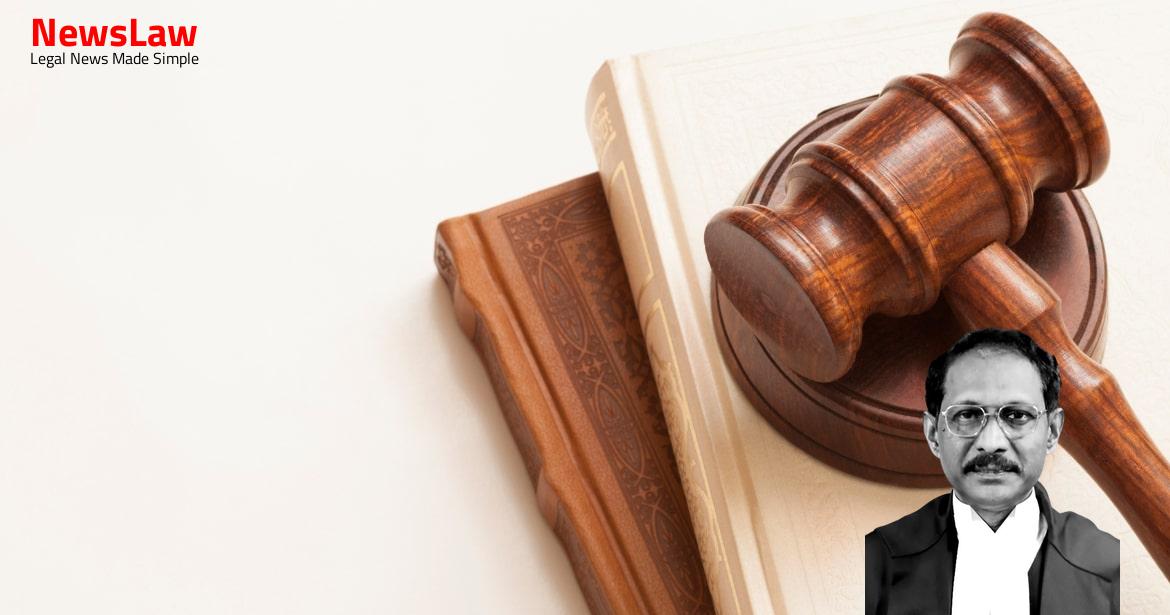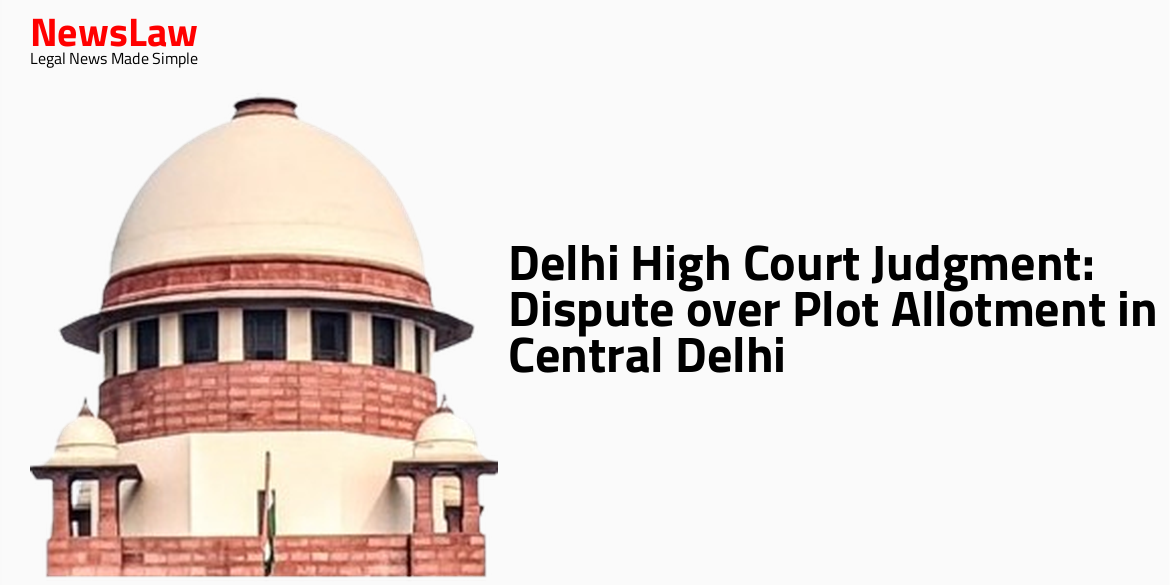Delve into the critical examination of manufacturer liability in cases of consumer misrepresentation. Discover how courts navigate the complexities of establishing responsibility in transactions involving dealers and manufacturers. This case sheds light on the legal nuances of principal-to-principal relationships and the extent of liability in consumer protection disputes.
Facts
- The district forum found ‘deficiency in service’ and held the dealer and the appellant jointly liable.
- The car sold to the customer was a used 2009 model with 622 km on it, instead of a new 2011 model.
- The appellant denied the defects, but the forum noted various issues like corrugated undercarriage, scratch marks, and missing parts.
- The state commission dismissed the appeal and ordered payment of 20,000/- for mental stress to the customer.
- The dealer was absent during the proceedings and the case proceeded ex parte .
- The customer requested a refund or replacement due to receiving a different model car.
- The National Commission upheld the orders of the lower forums and declared the appellant guilty of unfair trade practices, imposing a cost of 2,00,000/-
- The appellant’s two contentions before the National Commission were refuted: Vaz was considered a consumer and the principal-to-principal relationship defense was dismissed.
- The appellant was directed to comply with various orders, including paying 1,00,000/- to Vaz and the rest to the Consumer Legal Aid Account of the District Forum.
- The National Commission emphasized that the appellant had failed to provide concrete evidence to support their claim of a principal-to-principal relationship with the dealer.
- The National Commission considered the termination of the dealership by the appellant as a crucial factor in the case.
- The appellant’s appeal against the National Commission’s findings focused on disputing the absence of a principal-to-principal relationship.
Also Read: Legal Analysis on Seniority Fixation in Contempt Petitions
Arguments
- The appellant highlighted that the complaint was mainly about the alleged misrepresentation by the dealer regarding the car being old and used, not directly involving the manufacturer.
- The appellant argued that there was no evidence presented to prove direct involvement or knowledge of the manufacturer in the transaction.
- It was emphasized that the responsibility to prove the alleged defects in the car lied with the complainant, who failed to provide substantial evidence.
- The appellant stressed that the dealer’s misrepresentations about the car being of a newer model and brand new were not attributable to the manufacturer.
- The appellant refuted the claim of unfair trade practice and deficiency in service, as no direct involvement or special knowledge was established regarding the alleged misrepresentation.
- Documents such as the invoice and registration certificate indicated that the car was of a 2009 model, which should have been apparent to the complainant.
- The appellant asserted that without clear allegations or evidence of the manufacturer’s involvement or knowledge of misrepresentation, no liability could be imposed on them.
- It was argued that the responsibility to verify the details of the car, including the model year, rested with the consumer, and the manufacturer could not be held accountable for alleged misrepresentations by the dealer.
- Customers cannot purchase vehicles directly from the appellant, but through authorized dealers.
- The dealer exclusively sells cars manufactured by the appellant in designated territories.
- There is a principal-agent relationship between the appellant and its dealers.
- The dealer’s misconduct led to termination of the dealership agreement by the appellant.
- A defective car was attempted to be sold as new, showing lack of acknowledgment of faults by the manufacturer.
- Despite opportunities, the appellant did not produce the dealership agreement.
- Vaz approached the dealer to buy a car but found out about its old and used nature.
Also Read: Interpretation of Section 80-IA Deductions
Analysis
- Vaz lodged a protest with the dealer due to defects in the car and requested a replacement, which was denied.
- The dealer forced Vaz to take delivery of the defective car.
- The National Commission focused on the correctness of the State Commission’s order and did not entertain claims beyond what was presented.
- No privity of contract existed between the appellant and the consumer, hence no deficiency as per the Consumer Protection Act was established.
- The appellant, a manufacturer, was not directly involved in the sale of the car to Vaz.
- The relationship between the dealer and the manufacturer was deemed principal-to-principal.
- The acknowledgment of defects in the car by the dealer suggests the car was defective at the time of delivery.
- Punitive damages were not claimed in the initial complaint, leading to a lack of merit in the subsequent proceedings.
- The National Commission exceeded its jurisdiction by awarding relief not sought in the complaint.
- The lack of specific allegations against the appellant and no proven involvement in the dealer’s actions absolved the appellant from liability.
- The Company appoints the Dealer as its Authorized Dealer to sell and service specific products manufactured by the Company.
- Products and Spare Parts specified in the Agreement shall be sold within the designated Territory.
- The Territory includes specific cities and districts where the Dealer is entitled to sell the designated vehicles to customers.
- The Company reserves the right to make direct sales within the Territory.
- The Agreement does not establish an agency or principal-agent relationship between the Dealer and the Company.
- The Distributor is obligated to inform customers in writing about the provision mentioned in the judgment.
- The court has jurisdiction to entertain, hear, and decide the present petition.
- The liability of a manufacturer was discussed in the Indian Oil Corporation v. Consumer Protection Council, Kerala case.
- The memorandum of agreement between Indian Oil Corporation and M/s Karthika Gas Agency highlighted their relationship as principal to principal basis.
- In General Motors (I) (P) Ltd. v. Ashok Ramnik Lal Tolat, the appellant was found guilty of unfair trade practice leading to punitive damages.
- Manufacturer’s knowledge must be proved for liability to be fastened upon them.
- Relationship between manufacturer and dealer was on a principal-to-principal basis.
- Findings against the appellant by the National Commission and lower forums are set aside.
- The car may have deteriorated by now, allowing the respondent to execute the order for refund through the district forum.
Also Read: Judicial Analysis on Selection Process
Decision
- The appeal has been allowed based on observations and directions specified.
- No costs are ordered in this case.
- The appellant is directed to have the deposited amounts with accrued interest refunded.
Case Title: TATA MOTORS LTD. Vs. ANTONIO PAULO VAZ (2021 INSC 103)
Case Number: C.A. No.-000574-000574 / 2021



